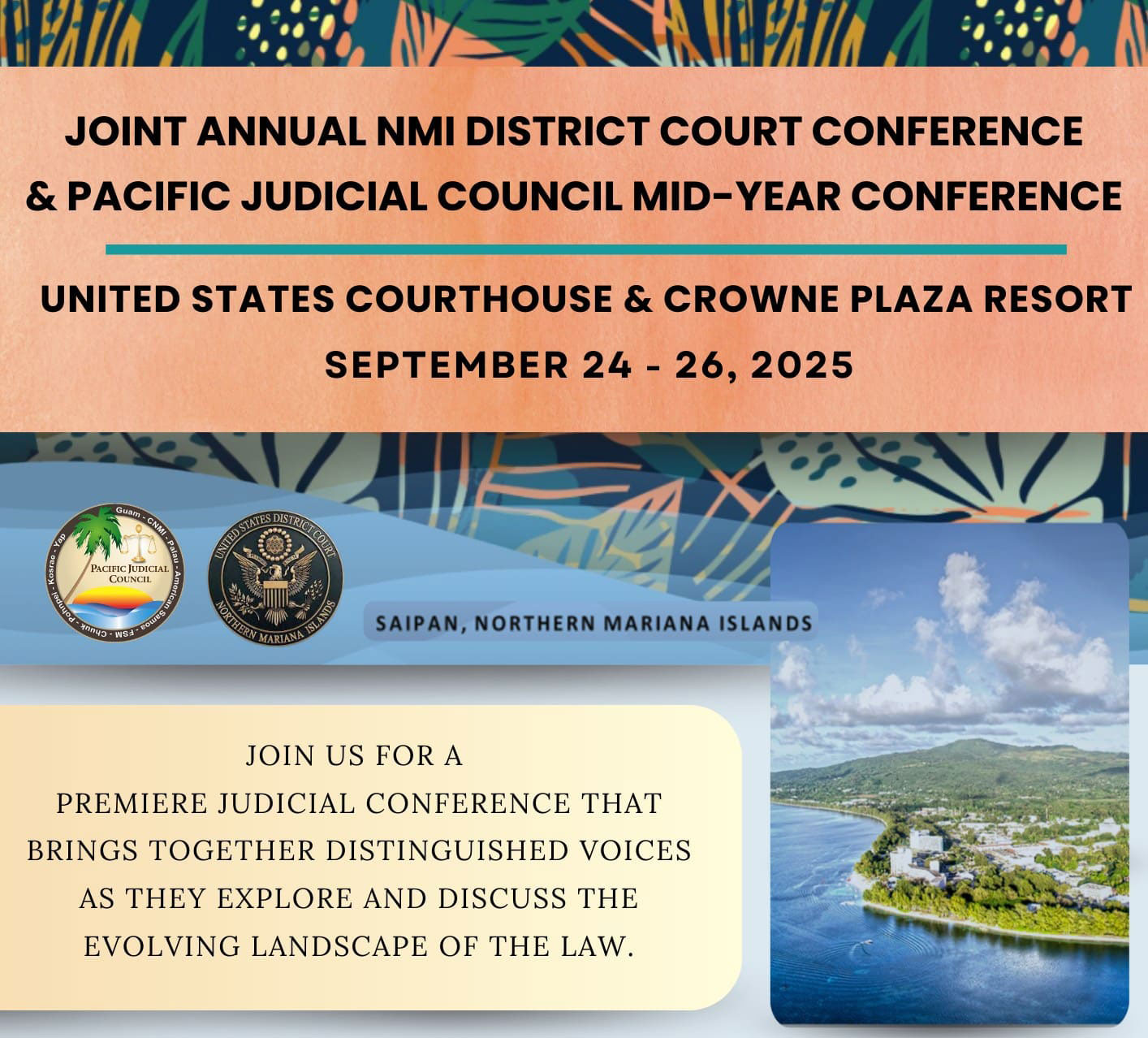Overview
Purpose
The Pacific Judicial Council was established as a non-profit association to promote dialogue among its members on matters of shared interest. These include:
- Continuing judicial and legal education
- Preservation of custom and tradition within existing judicial systems
- Coordination with law enforcement agencies
- Public education on substance abuse and domestic relations
- Judicial administration
Historical Background
The Pacific Judicial Conference originated from a recognized need for judicial education across the Pacific Islands. The first initiative was the Pacific Institute of Judicial Administration (PIJA), proposed to be housed at the Richardson Law School in Honolulu. It was led by the recently retired Chief Justice of the Federated States of Micronesia. However, due to funding challenges, the program did not materialize.
As PIJA struggled to secure resources, the Chief Justices of Papua New Guinea, Fiji, and Samoa launched their own educational initiative, successfully obtaining support from AUSAID and its New Zealand counterpart. These agencies have since played a key role in advancing judicial education in the South Pacific.
Unfortunately, the initial structure of the new organization created a divide between the North and South Pacific, designating U.S. territories and former trust territories to be managed separately by the United States.
To address the judicial education needs of the Northern Pacific, the Pacific Judicial Council was formed. It brings together the bench members of:
- American Samoa
- Guam
- Federated States of Micronesia
- Northern Mariana Islands
- Palau
- Marshall Islands
Initially, jurists from these jurisdictions convene every two years at the Pacific Judicial Conference. This gathering has proven to be the most effective platform for meeting the judicial education needs of the territories and Freely Associated States. Over the years, multiple judicial trainings programs were conducted annually across the member jurisdictions.
Council’s Role
The Pacific Judicial Council plays a central role in:
- Developing and delivering continuing judicial education
- Training court professionals
- Enhancing the administration of justice across member courts
Training Objectives
The Council’s training programs are designed to:
- Equip judges to deliver fair, impartial, and timely justice, with integrity, professionalism, and competence
- Develop ethical court leaders capable of training staff and leading modern courts
- Prepare lawyers as qualified candidates for future judicial appointments
- Train interpreters to ensure equitable access to justice for local communities
- Educate probation officers, court security personnel, and other staff to administer justice effectively and efficiently
Message from the Council’s Officers
Welcome to the Pacific Judicial Council’s website!
More than 25 years ago, our island courts came together with a shared vision: that by working together, we could improve the administration of justice throughout our region. This spirit of collaboration led to the creation of the Pacific Judicial Council, a non-profit association dedicated to promoting dialogue on matters that matter to us all—from legal education to the preservation of our traditions to public education and judicial administration.
As we step into a new era, our goal is to innovate and strengthen our efforts at the PJC. We are committed to building strategic partnerships that will expand educational opportunities, develop training and resources for members, and strengthen connections within our communities.
Thank you for your continued support. We look forward to the next two years and all that we can accomplish together.
Sincerely,
Justice Robert J. Torres
President (Guam)
Justice John A. Manglona
Vice President (Northern Marianas)
Chief Justice Cyprian J. Manmaw
Secretary (Yap)
Presiding Judge Alberto C. Lamorena III
Treasurer (Guam)
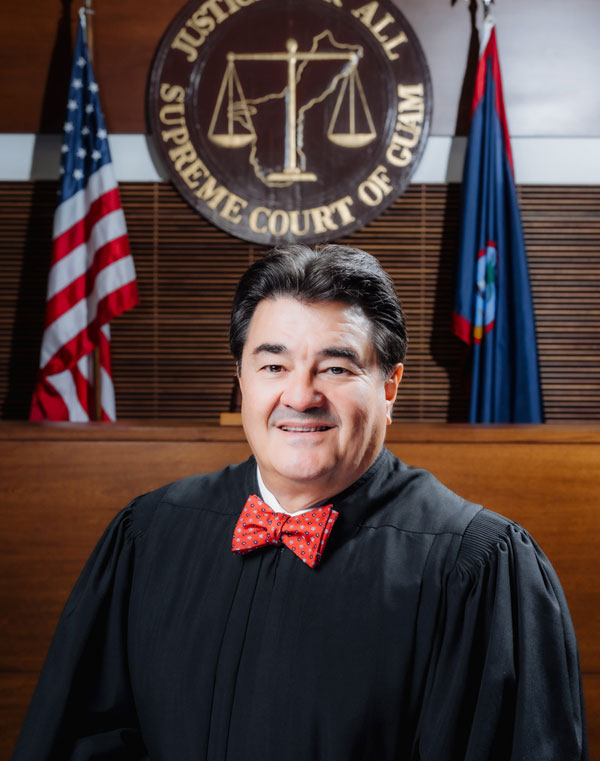
Justice Robert J. Torres
President (Guam)
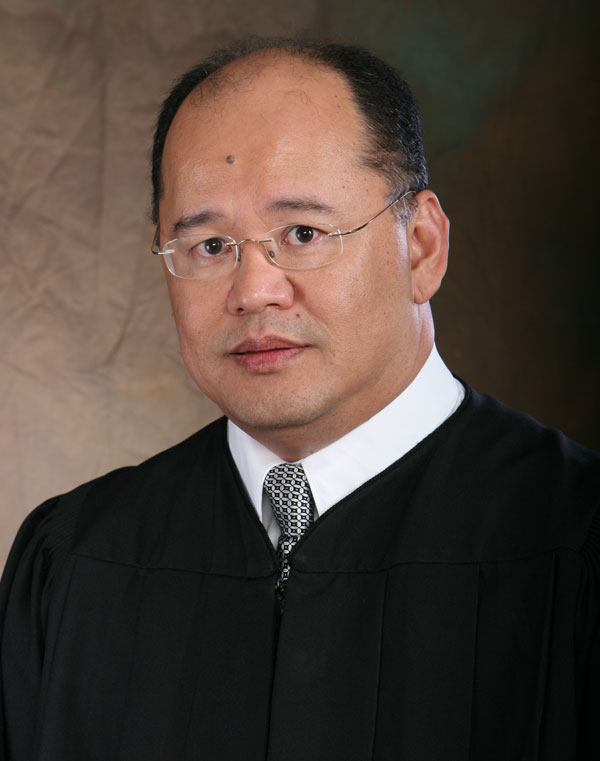
Justice John A. Manglona
Vice President (Northern Marianas)
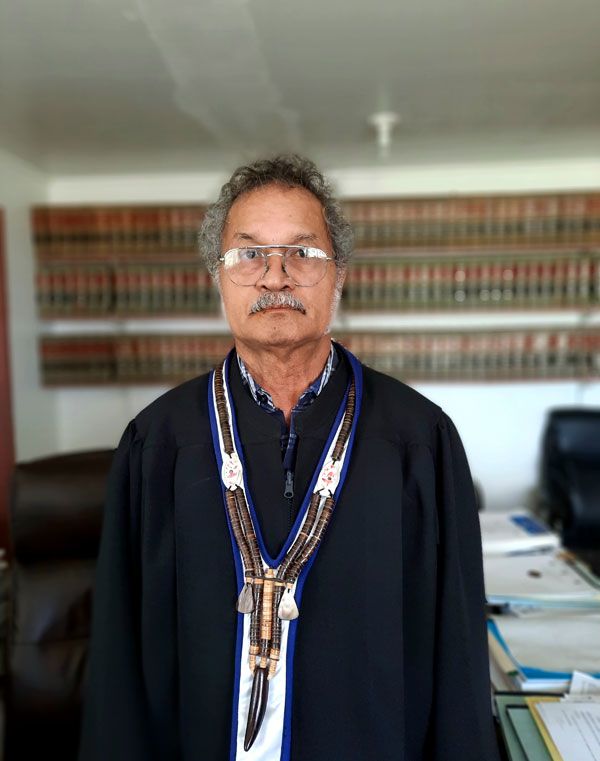
Chief Justice Cyprian J. Manmaw
Secretary (Yap)
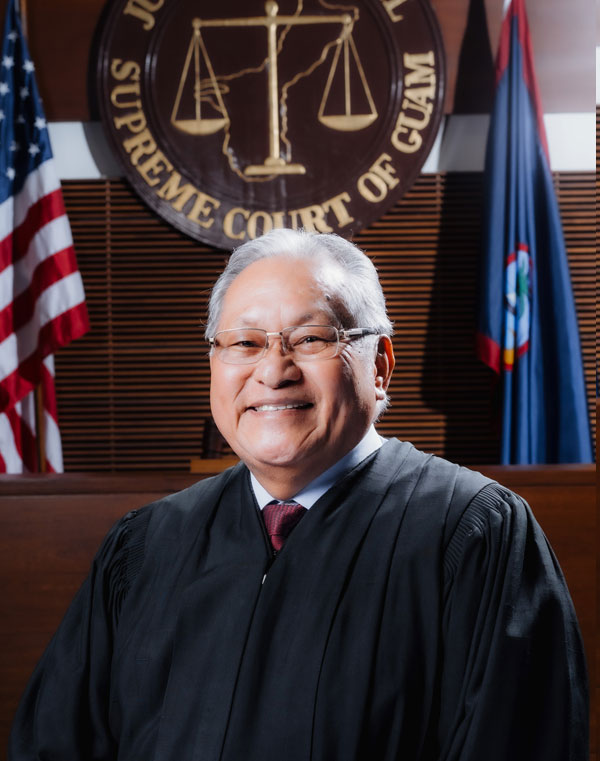
Presiding Judge Alberto C. Lamorena III
Treasurer (Guam)




